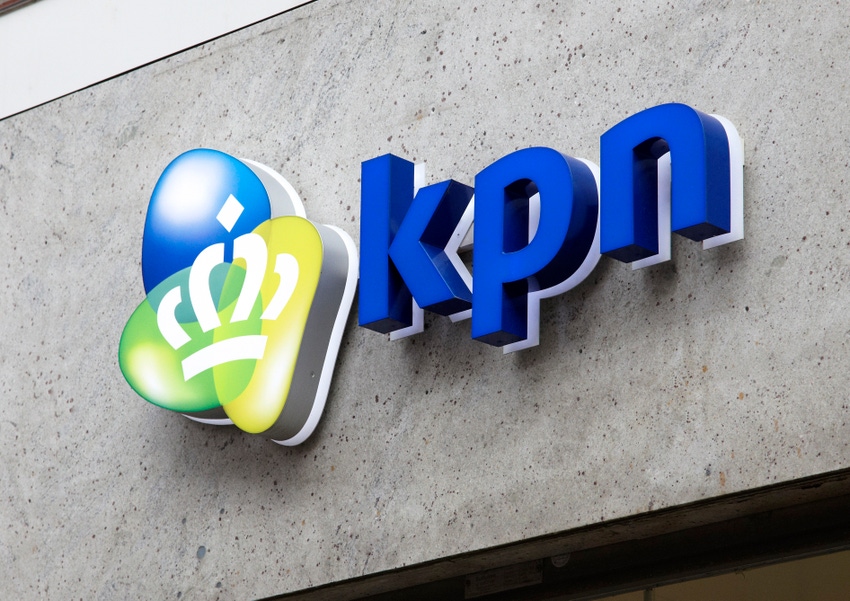KPN tells buyout firms to take a hike
Swedish buyout firm EQT and US counterpart Stonepeak finally made a joint offer for KPN, only for the Dutch incumbent to reject it out of hand.
May 4, 2021

Swedish buyout firm EQT and US counterpart Stonepeak finally made a joint offer for KPN, only for the Dutch incumbent to reject it out of hand.
KKR also tried its luck with a bid of its own, but was turned away as well.
In a statement, KPN’s board said it reviewed the offers, but concluded that neither provided “tangible and material added value over KPN’s recently updated growth strategy.” It added that it is not currently holding any negotiations with any of the bidders.
Doubtless EQT/Stonepeak and KKR would disagree with KPN’s assertion; nevertheless, it falls to them to come up with something more compelling that will win over one or more of the telco’s major shareholders.
One obvious idea would be to offer a big enough chunk of change that would help KPN further accelerate its fibre rollout.
In March, the telco teamed up with Dutch pension fund APG to form a joint venture that will deploy a €1.2 billion wholesale FTTH network. The JV aims to connect 910,000 premises in underserved areas. Add that figure to the 2.5 million households that fall under KPN’s ongoing in-house fibre rollout, and it comes to 80 percent of households by 2026.
KPN has embarked on this project in the face of stiff competition from Vodafone Ziggo. During the course of 2022, the cableco aims to offer Gigabit connectivity to all 7.3 million premises covered by its network, which equates to 93 percent of households. Last month, Vodafone Ziggo increased the peak speed of all of its fixed broadband packages except its range-topping 1-Gbps tariff.
It’s not unreasonable to think that KPN’s board might be more amenable to new investors that were prepared to finance an even more rapid fibre rollout.
Indeed, as KPN’s latest quarterly results indicate, fibre is helping its fixed-broadband unit to turn a corner, albeit quite slowly.
Numbers published late last week show that KPN lost around 1,000 fixed broadband customers during the first three months of the year. That represents an improvement on the previous quarter, when it lost 3,000. KPN attributed the slowdown in net customer losses to fibre: it activated 47,000 fibre connections during Q1, up from 21,000 in Q4.
“During the first quarter of our updated strategy, we saw encouraging base developments in our mass-market segments, with growth in fixed-mobile households fuelled by fibre, and growth in our mobile and fixed customer base in SME and Wholesale. Together with favourable underlying ARPA and ARPU trends, this gives us further confidence we will deliver on our ambition to grow mass-market service revenues by the end of this year,” said KPN CEO Joost Farwerck, in a statement late last week.
However, even if EQT/Stonepeak and KKR did come back with a more attractive offer that would unlock additional funds for fibre, there is the not-so-trivial matter of government opposition to consider.
Recent new legislation gives the Netherlands government the power to block any takeover bid that could undermine national security. The Economic Affairs Ministry said in a report by Reuters it was aware of the rejected takeover bids for KPN, but refused to comment further.
Even if the government were prepared to sanction a foreign takeover of its incumbent operator, KPN shareholders themselves could still mount a defence. One such group did exactly this in 2013, thwarting a bid by Mexico’s America Movil.
As much as private equity firms would like to get their hands on KPN and its blossoming fibre footprint, the obstacles would appear at this point to be insurmountable.
About the Author(s)
You May Also Like









.png?width=300&auto=webp&quality=80&disable=upscale)

_1.jpg?width=300&auto=webp&quality=80&disable=upscale)


.png?width=800&auto=webp&quality=80&disable=upscale)